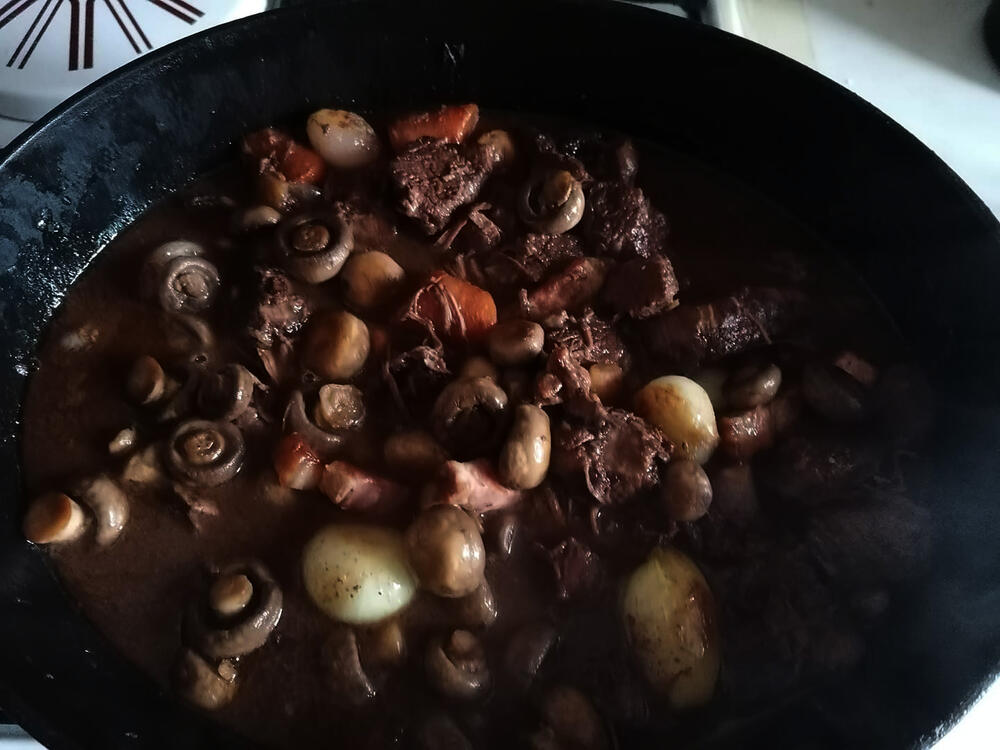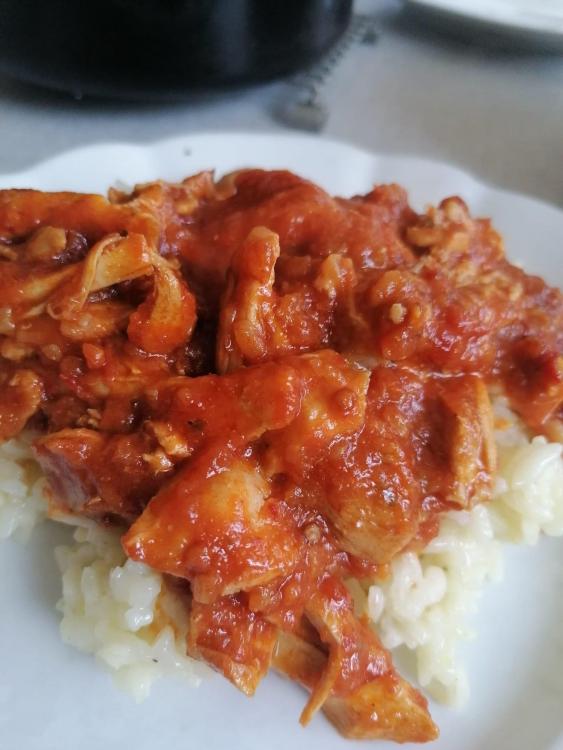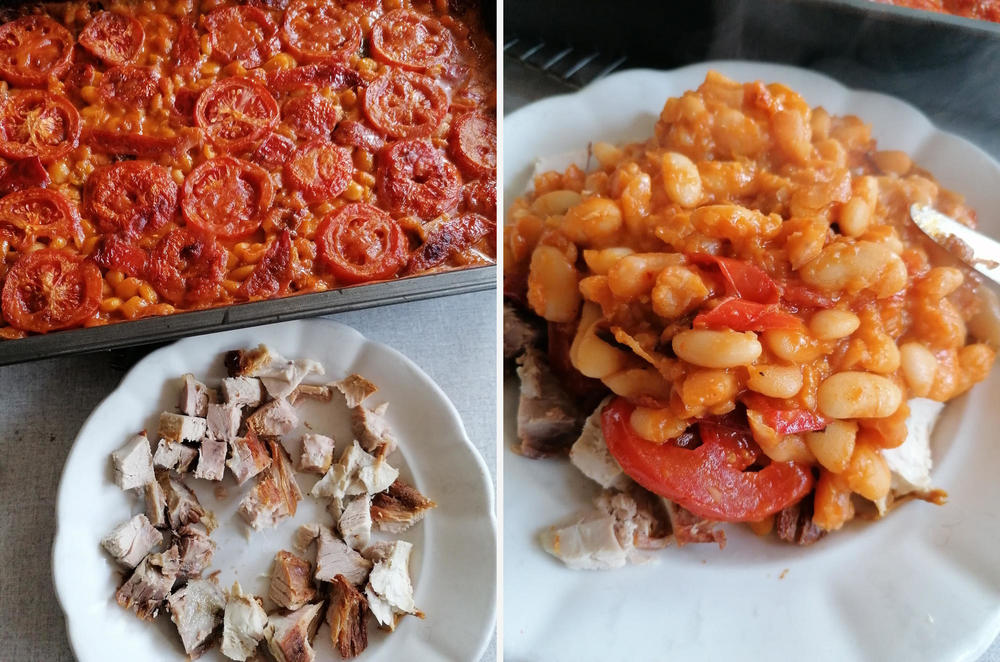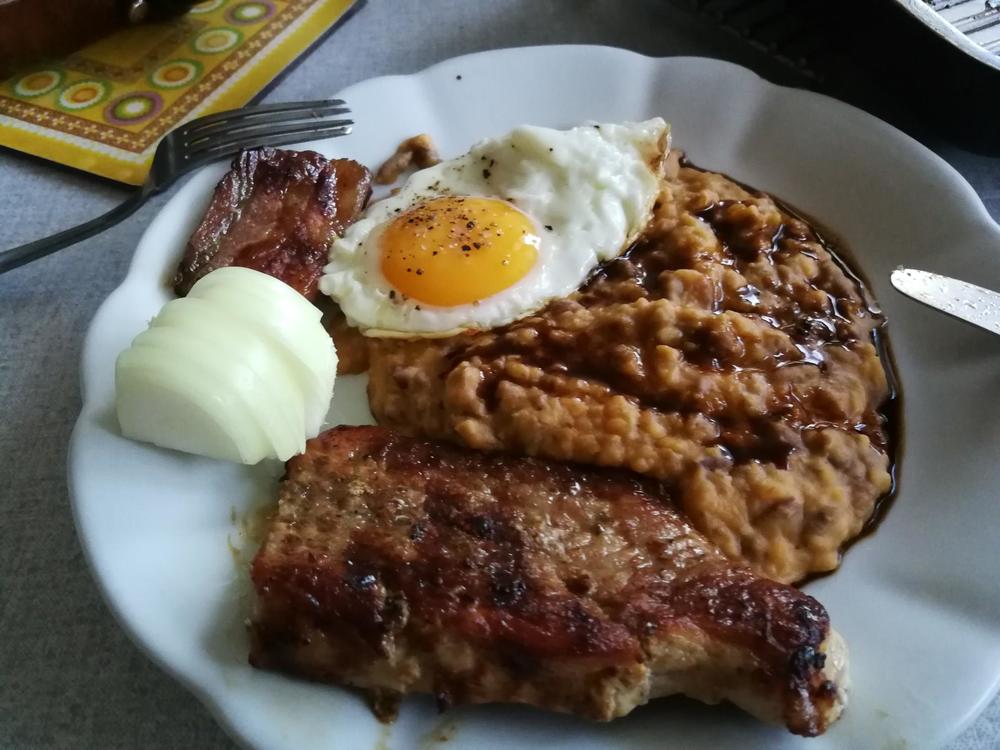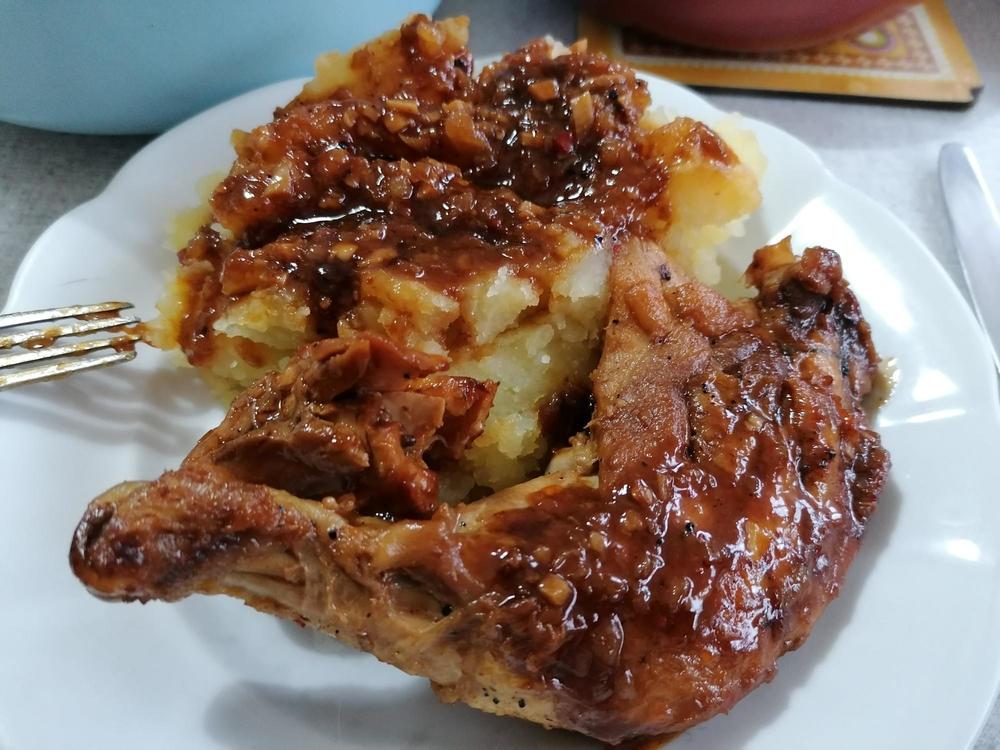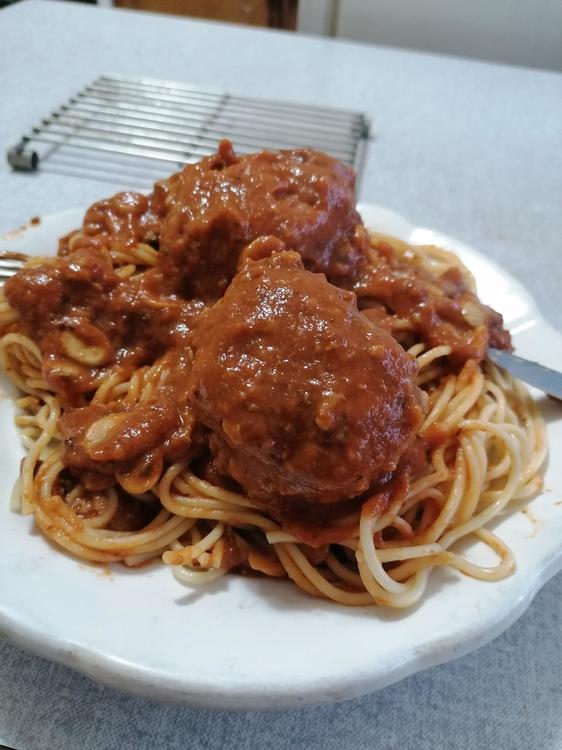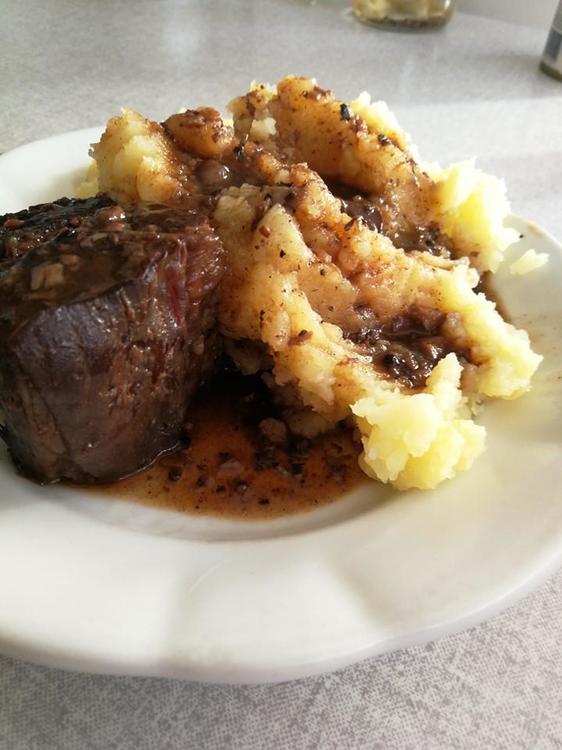-
Posts
80 -
Joined
-
Last visited
Profile Information
-
Location
Zagreb, Croatia
Recent Profile Visitors
4,712 profile views
-
Here's my take on hungarian stews and how they relate... Goulash is rather thin stew and is not thickened with anything other than stewed onions, paprikash is considerably thicker with emphasis on paprika (and sometimes peppers) and can be thickened either with cream or flour (sometimes both) and pörkölt (perkelt in neighbouring slavic countries) is even thicker and can be thickened. All of them can be prepared with a variety of main ingredients, but mostly goulash is made out of meat and poultry, paprikash is made with virtually anything (meat, poultry, fish, even mushrooms) and pörkölt is as far as I know made with meat and fish. All of them have a base of stewed onions onto which main ingredient is added (caveat, the example of old-timey paprikash is the only example I've seen with browning step of the main ingredient*), stewed and then are spices and liquid added, and simmered. At the end stew is thickened (interesting method is mixing in the flour in cream before adding). Usual additions to those stews are either cubed potatoes or nokerdli (small hand torn pasta, not unlike spätzle). Interestingly, I think if starch component is added the thickness gets reduced (stew gets more 'soupy'). The liquid traditionally being added is almost always water. If wine is added along it becomes something new- e.g. Weingulasch or vinski gulaš, and becomes thinner (but this maybe belongs into the next paragraph about 'exported versions'). As they moved abroad (particularly to neighbouring countries from which they launched their expansion) funny things happened- while their nature (how they're prepared) stayed the same the thickness changed dramatically. Original goulash is as thin as something called goulash soup (Gulaschsuppe, gulaš juha) outside of Hungary, and when moving abraod it became as thick as paprikash if not even thicker. What most people outside of Hungary think as goulash (the 'exported version') is much closer to pörkölt than to original goulash. Paprikash stayed much the same since it is quite versatile and can be made in variety of 'thicknesses' (from quite thick to quite thin). Sometimes paprikash is served with pasta (tagliatelle would be close enough) that was covered in cream before serving. * mind you, a good and attentive cook will prolong stewing the main ingredient and onions until all, literally all, water has evaporated and then proceed to brown them- this step is vital with pörkölt, but benefits all of them so it best not be omitted P.S. sorry for longish post and please take everything I wrote with a grain of salt- I'm no expert on Hungarian cuisine, but my parents lived for a while in a part of Croatia close enough to Hungary. Recipes to follow.
-
If it's still of interest, I could write a few words on subject of chicken paprikash and goulash and post a recipe or two (modern version is quite convinient but traditional, posted in 1911 as old way of cooking paprikash is absolutely splendid). As for skin, I'd remove it only after cooking- why give up on the goodies that make it better like collagen and a bit more chicken fat.
-
This thread brought up a particular memory. Back in college days I invited a very dear high school frend for a dinner, picked her up, cooked baked creppes filled with smoked chicken breast and some hungarian cheese (the cheese was in red cling film with a picture of camel on it) in front of her. We had a most memorale evening incl. she suggesting they should be rolled like stuffed cabbage rolls, which I have never done in my life so she taught me to do it and helped me with it. Of course, the dessert was leftover creppes with whatever filling we found- we had both chocolate syrup bought for the occassion and homemade plum jam. Did I mention that I had never cooked a single dish prior to that? Or that I have never tasted, or even heard of such a dish in my life (or since)? I had concocted is thinking it would be something she'd like (and she said she did- out of politeness or really I don't know, but I did like them and I'm fussy about food). And then I never cooked a single thing for almost a quarter of the century.
-
This is terrible and very sad news- not only because she was respected any very helpful member whose posts I liked to read but we shared a connection, even accross the Big Pond, that we talked about (I knew her cousin who was assisstant professor at my University). She will be sorely missed. Rest in peace (laka ti zemljica).
-
You think it's bad? In my country there was a corrupt, tax-evading bon-vivant food writer for a paper who dabbed in political writing/commenting. He then interviewed our prime minister by means of e-mail, no less, got it published in the paper... only for it to turn turn out to be (surprise, surprise) a prankster insted of PM. Of course, he retired and incognito opened a website on food & wine where he was publicly accussed by several restauters tha he extorted them for good reviews. And that is the most influential and popular site on dining scene in my country. *facepalm*
-
Sorry, I believed it too for a long time but have seen a video that did Paul Bocuse's recipe for boef bourgignon who advises otherwise. Incidentally, in my neck of woods goulash is prepared in a similar manner so, after seeing the recommendation applied successfully (and I guess who am I to contradict Paul Bocuse), tried it out with great success. The key is patience, both as browning may take in excess of 30 minutes and in not giving up too early. (as a word of caution: if meat is of lower quality or was previously frozen it may release larger quantities of water- nevermind it, jusk keep at it and it will succeed all the same, as witnessed by me) The video in question: https://www.youtube.com/watch?v=xARB2vlmEU .
-
I may be asking something really stupid, but wouldn't you start with lamb and bitter greens, as the good Book suggests? (pardon me, I come from Catholic tradition, but I do honour our forefathers in faith)- for the lack of better proposal I would start the meal with the serving of black kale (tuscan variety) with white beans on a toast (IlboccaTV has video on the subject- as a sort of poor man's diet) A roast of lanb should round that off quite nicely.
-
Minimum spices, maximum flavour- boeuf bourgignon... a bit of FXCuisine, a bit of Julia Child and a few of tricks I picked along the way. Smells and tastes far better than it looks. (A thing I should have done is either to thicken or reduce the sauce, but I left it as is to make reheating easier... it can always be done when reheating.)
-
-
-
@chefmd That brisket looks absolutely amazing! Could I trouble you for recipe (broad sketches) how it was prepared? TIA
-
-
Chicken adobo (recipe from FoodWishes.com): I don't know how's it supposed to taste- but this is deee-licious.
-
Yesterday mornig, as I went to the market, I decided to make 'pizza meatballs with a surprise'. So, I made meatballs (with grana padano added to the usual mix) wrapped around cubes of gouda (should've been about 1/2"- mine were bigger so the meatballs were rather on the large side), in pizza sauce* with sliced mushrooms. Served with spaghetti. * made roux on meatball drippings, roasted some tomato paste when the roux was mid-brown, added tomato passata and finely chopped anchovy fillet, a bit of salt, majoram and oregano... Returned meatballs to the pot (played with sauce consistenchy while cooking by alternating passata and warm water to replenish liquid), and added sliced button mushrooms halfway through cooking
-
Peposo with mashed potatoes (which were so creamy by themselves that no butter or cream needed to be added, just a bit of salt)












